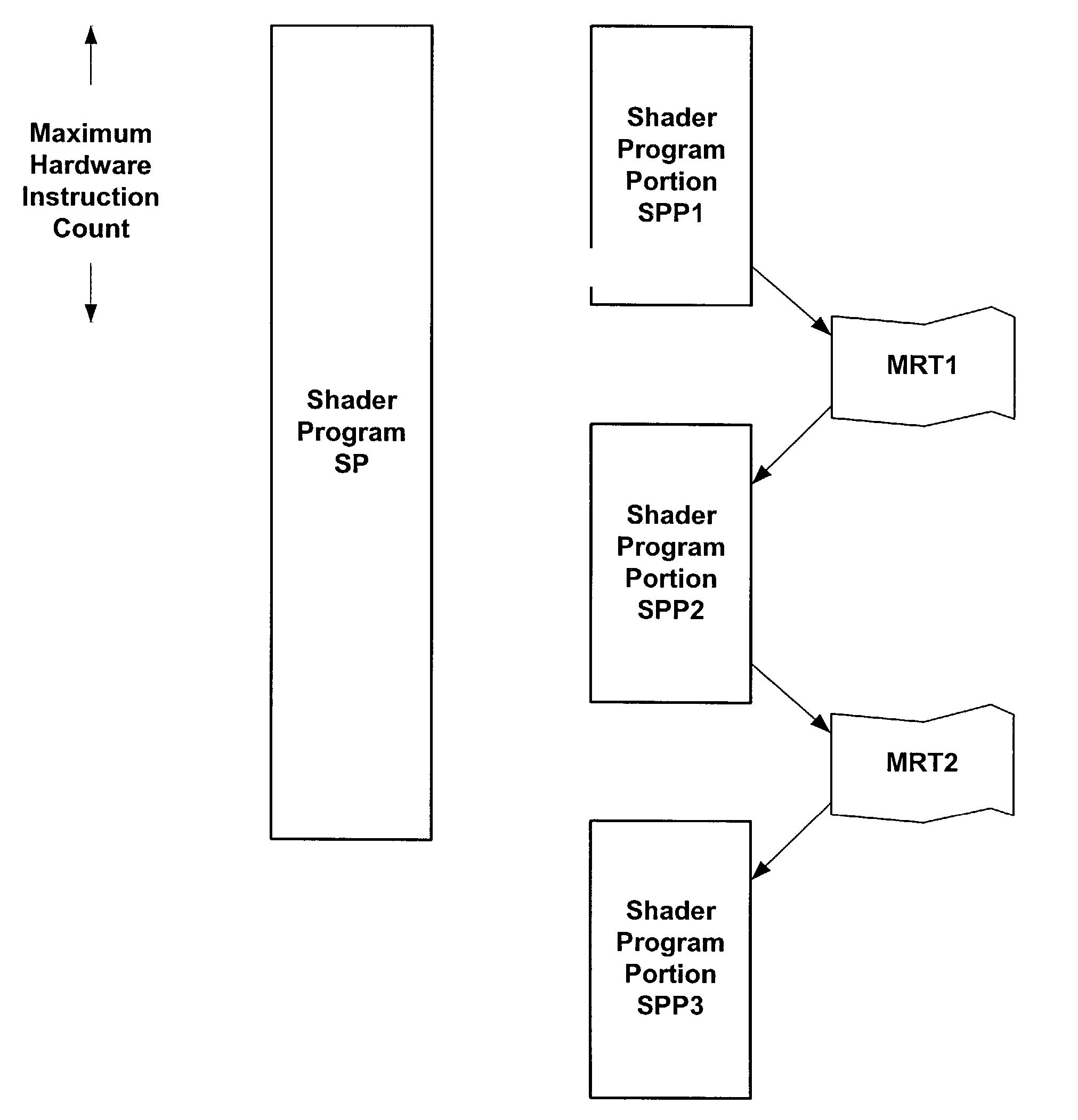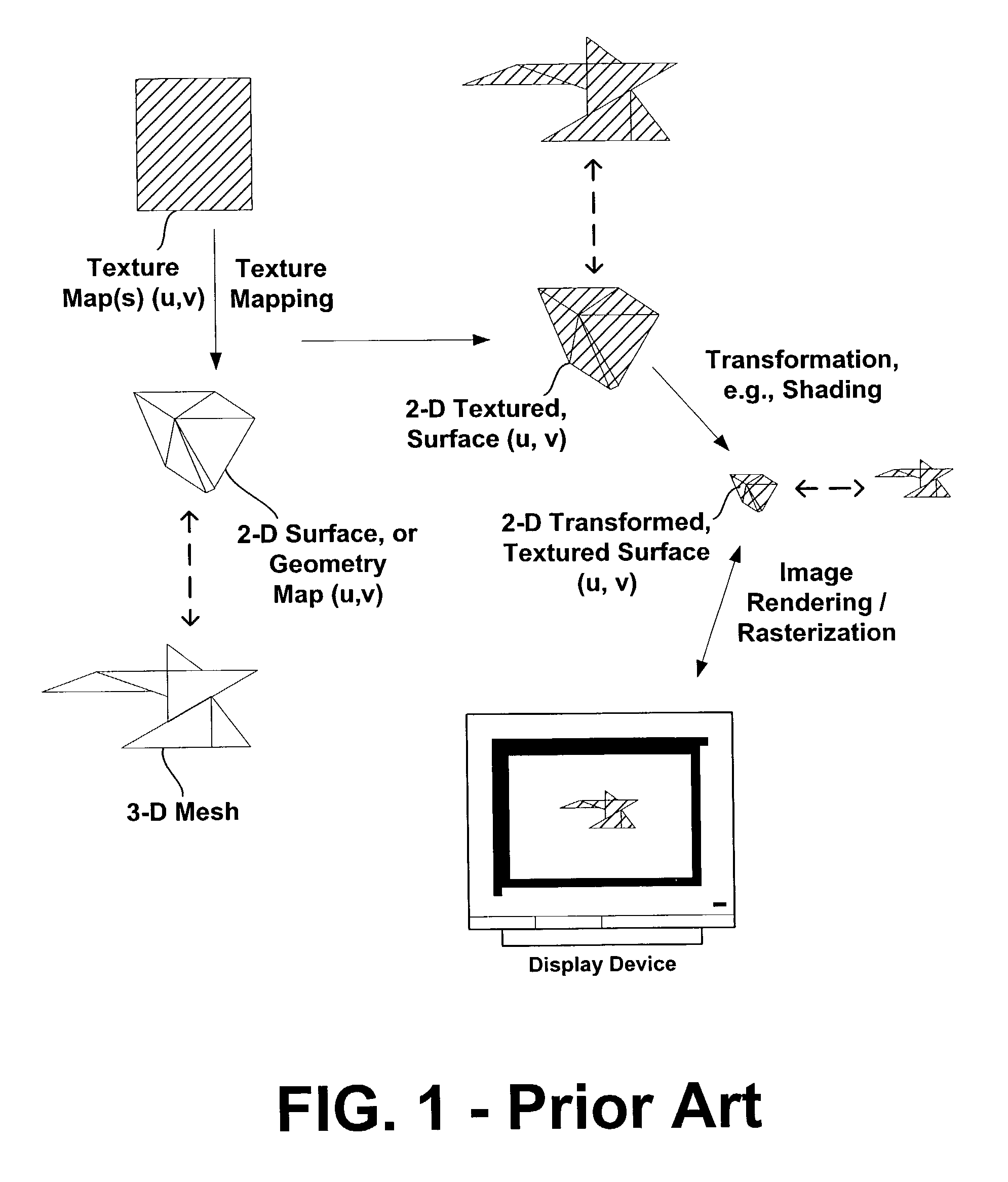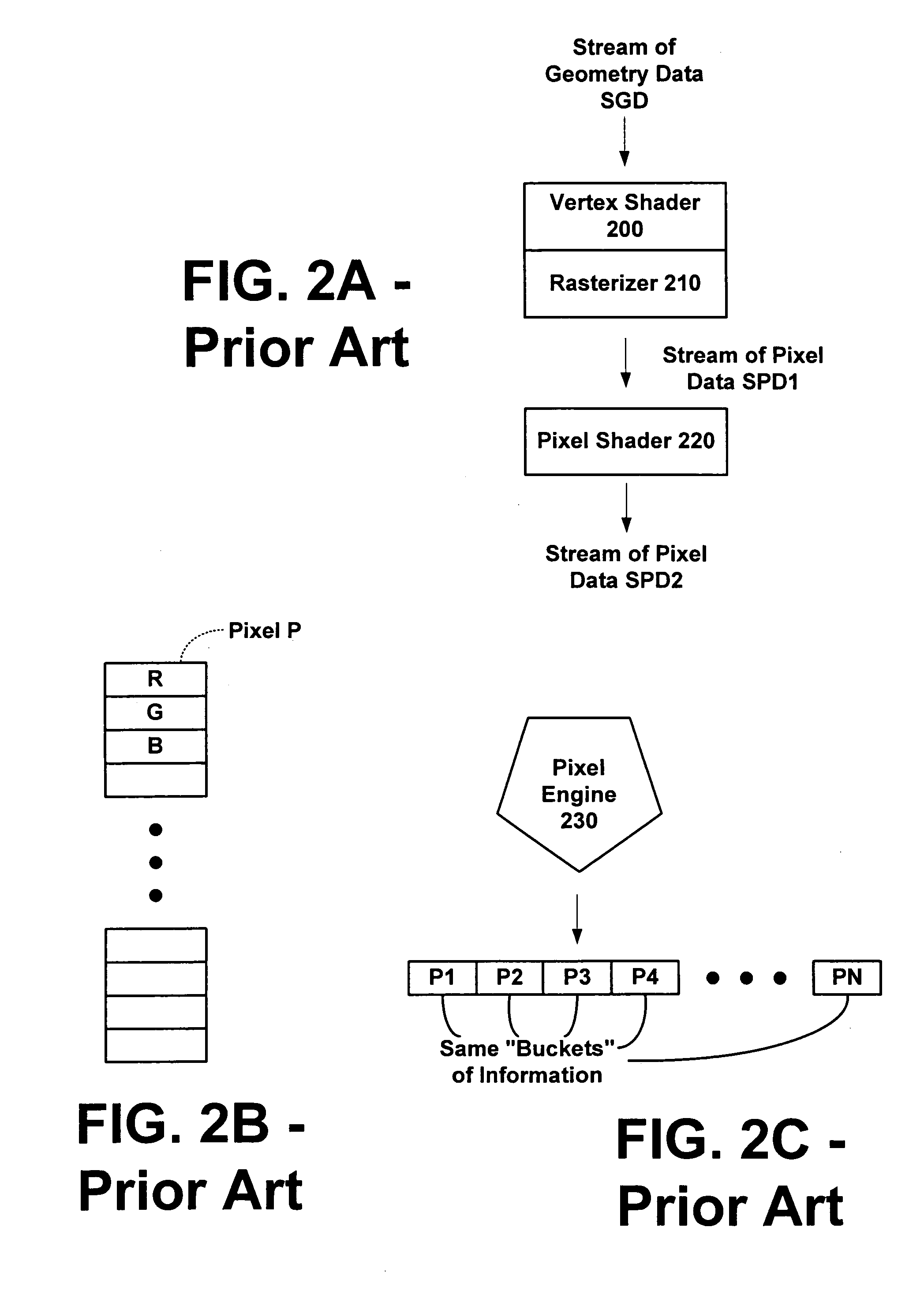Systems and methods for providing intermediate targets in a graphics system
a graphics system and memory target technology, applied in the direction of memory address/allocation/relocation, instruments, architectures with multiple processing units, etc., can solve the problems of cpu adding overhead to the specialized shading process, little choice, rendering and displaying a 3-d object can be computationally intensive, etc., to achieve the effect of maintaining the speed of modem graphics chips and reducing the complexity of shading programs
- Summary
- Abstract
- Description
- Claims
- Application Information
AI Technical Summary
Benefits of technology
Problems solved by technology
Method used
Image
Examples
Embodiment Construction
Overview
[0033]As described above, the present invention enables multiple intermediate target circulation for use in shading languages, such as low level shading languages, which enable a developer to program the functionality of procedural shaders. Graphics platforms that do not have the recirculation of intermediate targets in accordance with the invention are limited in the size and complexity of programs that operate on a per pixel and per vertex level. The systems and methods of the invention enable the creation of a high level language to abstract and simplify use of the programmable capabilities in connection with the evolution of a generally programmable graphics pipeline. The invention can also be used to create virtually unlimited length programs that allow non-real time rendering using hardware acceleration. The size of the buffers, i.e., the amount of data stored in the intermediate targets, can be variably set for a varying amount of resolution with respect to the graphi...
PUM
 Login to View More
Login to View More Abstract
Description
Claims
Application Information
 Login to View More
Login to View More - R&D
- Intellectual Property
- Life Sciences
- Materials
- Tech Scout
- Unparalleled Data Quality
- Higher Quality Content
- 60% Fewer Hallucinations
Browse by: Latest US Patents, China's latest patents, Technical Efficacy Thesaurus, Application Domain, Technology Topic, Popular Technical Reports.
© 2025 PatSnap. All rights reserved.Legal|Privacy policy|Modern Slavery Act Transparency Statement|Sitemap|About US| Contact US: help@patsnap.com



